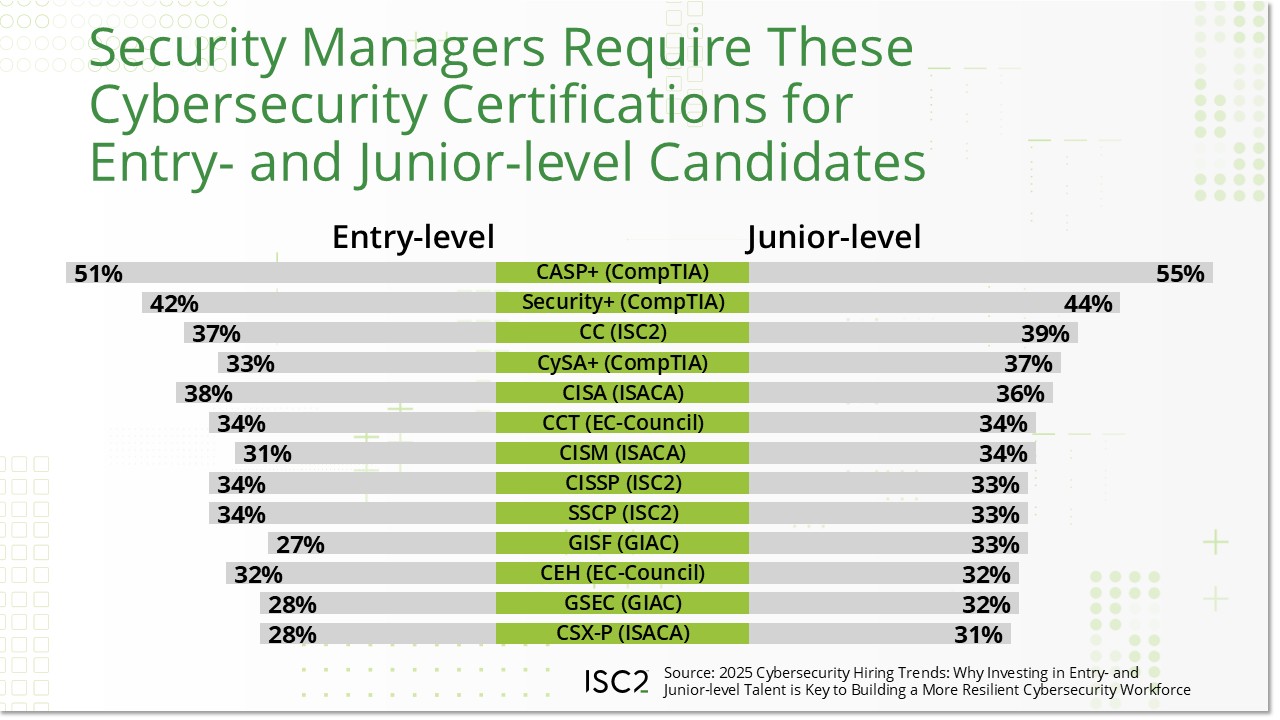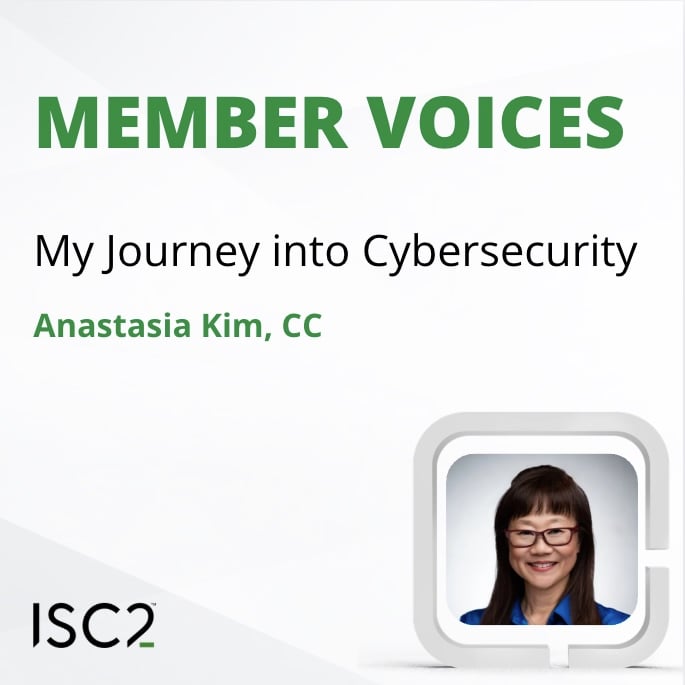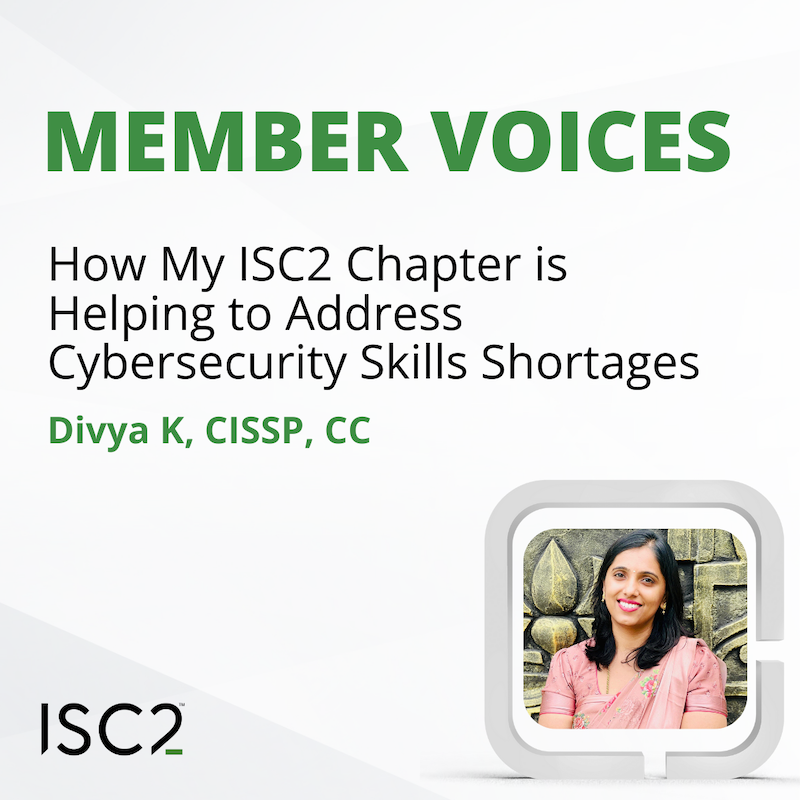Hiring for any cybersecurity role can be challenging, but finding a unique balance of knowledge and potential can make the entry- and junior-level roles even more difficult to fill. This is where the ISC2 Certified in Cybersecurity (CC) credential comes in.
Certified in Cybersecurity, Fit for Your Team
Launched in 2022, the CC credential filled a gap in the ISC2 portfolio for individuals with no prior cybersecurity experience. Getting Certified in Cybersecurity provides employers with the confidence that individuals have a solid grasp of the right technical concepts, and a demonstrated aptitude to learn on the job. Three years later, there are more than 68,000 CC holders around the world.
However, ‘no experience required’ does not mean that CCs are without the knowledge and abilities necessary to trust them as members of your team. According to our data, some 45% of CC holders reported already working in cybersecurity.
Cyber Savvy and Certified
While there is not a work experience prerequisite to earn the CC, there is – as with the CISSP, and all ISC2 credentials – a continuous education requirement. By the end of their three-year cycle, CC holders must earn at least 45 CPE credits in the Group A category. Group A relates to the domains of the credential, which for CC is:
- Security Principles
- Business Continuity (BC), Disaster Recovery (DR) & Incident Response Concepts
- Access Controls Concepts
- Network Security
- Security Operations
Both the CC exam and course have global recognition. The CC is approved for 20 out of the 54 work roles currently identified in the DoD 8140 Cyber Workforce Qualification Provider Marketplace. And according to the Skills Framework for the Information Age (SFIA), a CC-certified practitioner could reasonably be expected to demonstrate knowledge necessary for 17 different skills at either Level 1 or 2.
"[Entry- and junior-level cybersecurity professionals] are an indispensable presence for our company as they are the people who will be in charge of the company in the future." - Cybersecurity hiring manager based in Japan
Many CC holders are focused on earning more advanced certifications and investing in their professional development. At the end of 2024, nearly 10% of CC holders had progressed to another credential – many of them to the renowned CISSP – and when surveyed, 67% indicated their career aspirations included another ISC2 certification. This is a group with a strong drive to grow in their careers and build up their cybersecurity knowledge.
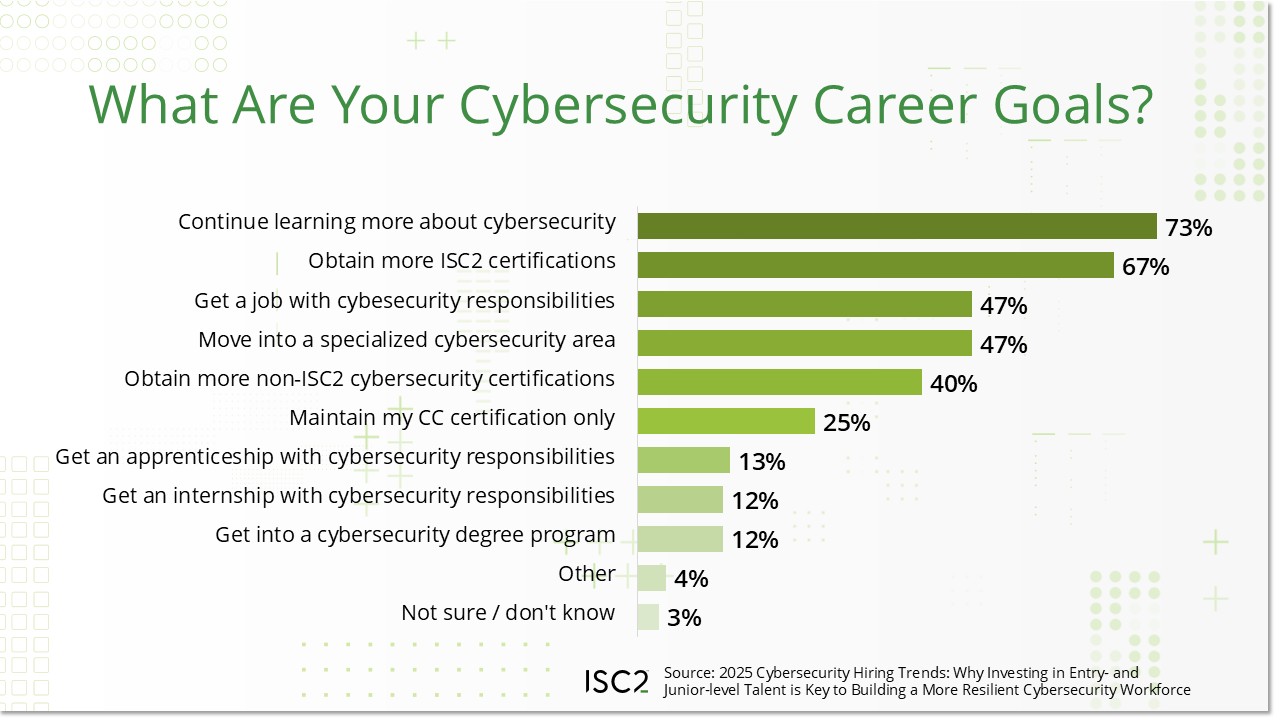
“While I’ve been building skills across penetration testing, cloud architecture, and backend engineering, I recently made a conscious decision to complement my capabilities with formal certifications—a path that affirms my knowledge, builds trust, and opens new opportunities. This certification is the first of many as I position myself to serve critical sectors with practical, standards-based cybersecurity.” - Abdulakeem Sanusi, CC
Foundational, Not Basic
The CC exam focuses on the foundational topics necessary for working in cybersecurity. The domains align strongly to the top 5 tasks hiring managers reported assigning to their entry- and junior-level staff, according to the Cybersecurity Hiring Trends Report from earlier this year.
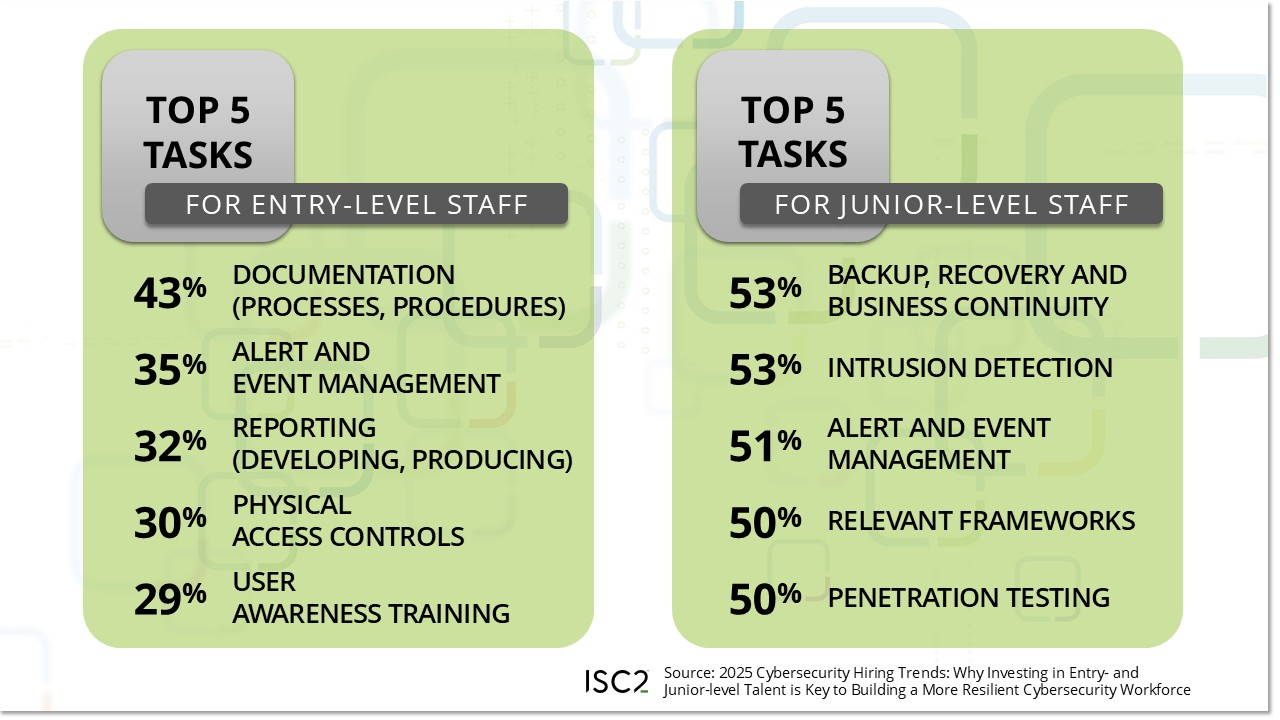
The report also reinforced the requirements from hiring managers when it comes to certifications they want to see in their entry- and junior-level staff. The CC was reported at 37% for entry-level and 39% for junior-level roles.
Build Your Team for the Future
When searching for the ideal candidates to fill your entry- and junior-level roles, consider those with the Certified in Cybersecurity credential. By earning the CC, they have proven their foundational knowledge in cybersecurity and as ISC2-certified members, they are committed to continuous education to grow in their career and develop their knowledge.
“Our juniors are our rising stars. If I had half a dozen more juniors of the caliber we have now, we would not have ANY security concerns going into the 2040s even." - Cybersecurity hiring manager based in Canada
